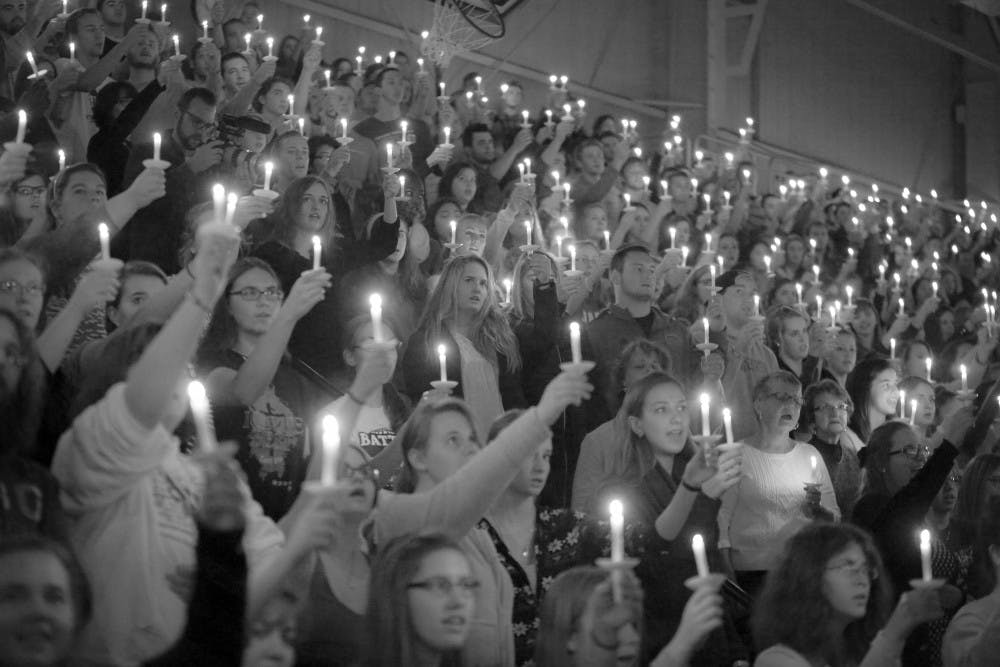It’s the most wonderful time of the year — but for some, Christmas may feel a little different this holiday season, an empty seat or glowing smile missing from the dining room table.
Grief has a way of overshadowing every occasion.
“It’s a tad lonely,” junior Sarah Lozier said.
While the losses of her grandmother and great-grandmother were not recent, the wound has not yet fully healed for the professional writing major and her family.
The holidays — Christmas and Thanksgiving especially — look different than they did throughout Lozier’s childhood, as yet another Christmas is about to pass by without the family traveling to her grandmother’s house.
“In the beginning, the grief is like this,” Debbie Stiles, director and assistant professor in the social work program, said. “It's a certain size, and it pretty much consumes everything. But as your life goes on, it's not that the grief gets smaller, but our life starts to expand.”
It’s a lesson Stiles learned in theory through her time working as a therapist.
It’s a lesson that she’s learning personally as well, with this year marking the first holiday season she’ll celebrate after her husband’s passing.
Still, Stiles has chosen to focus on finding hope in the midst of her grief, not ignoring its impact, but living into the new reality it brings. And ultimately, that seeking has led her back to Christ.
Digging deeper into the tradition of the advent wreath, where five candles are lit throughout the Christmas season, Stiles realized just how richly the seasons of grief connect with the promise of advent.
Four candles, symbolizing hope, peace, joy and love, surround the central “Christ” candle in the wreath’s center. Their traditional purpose is to show how Christ demonstrates these values in both the “now” of the present age and the “not yet” of Christ’s return.
“We have to grieve and we don't want to gloss over that part,” Stiles said. “But that can feel pretty endless. And so thinking about Advent is (thinking about how) it takes time.”
The “not yet” of healing and the “not yet” of the day when death will be no more have both been comforting to Stiles. So has the idea that now, in this present, it’s ok to not be ok.
It’s what Jon Cavanagh, counseling intern and special assistant to the vice president for student development athletics, described when he defined lament.
“For people to lament is (to create) a space to grieve together,” Cavanagh said. “They might not be experiencing grief over the same thing, but (lament is) kind of having public recognition to grieve a loss or something that's not right in the world — to acknowledge that together.”
For Lozier, the first step of lament began further back.
Before being ready to grieve with others, she’s had to learn to acknowledge the grief in herself.
“Remember them,” Lozier said. “Because, looking at the Christmas ornaments whenever I put up my tree, that's my way of acknowledging it, like Grandma's still with me, while (I’m) also moving on with my life.”
It’s not an easy journey. In many ways, it’s one that never ends. The people who shaped us continue to influence our lives after death, even in little ways.
Like Stiles, who still keeps the lamp and table her husband crafted in her office, Lozier has remained sentimental for those smaller anchor points. She’s learned to accept that tasting Smarties brings back memories of what her grandma would give her in the middle of a church service. She’s learned to hold on to pieces of the past through her writing. She’s learned to accept the struggles her family has gone through.
She’s learned to live in the now and the not yet.





